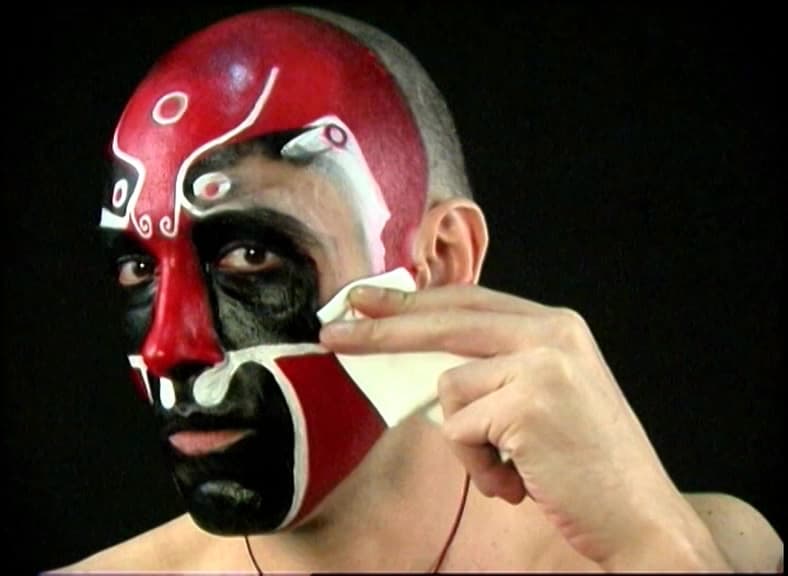The Painter畫家
Certain gestures in the history of the arts seem to be compulsive. Like the act of signing, through a name or another device, an image for instance. Most importantly, we could advance that the history of the arts, and of those concomitant, albeit localized, gestures, is very much the history of the mask. The Greek ‘personae’, which is the particular resonance produced by the theatre mask, has left its mark in western metaphysics and ontology. As if being was that resonance of the persona, of the person. As if being was an essential artifact of language and its echo. a closed circuit relationship. As François Julian puts it in his “penser la chine (un dehors) – entretiens d’extrême occident” the east, and especially china, doesn’t find such a central role for the “issue” of being at all, it is more concentrated with other coordinates, those of flow and action. Its artifacts are of a different order. There seems to be a different in density. If the Greek could be somehow said to be heavy, through clay and wood, through the very density of the theatre play and its text – in the orient it is a matter of skin depth density and lightness that prevails. The density of maquillage, and although Nietzsche could quickly dismiss our argument, saying that the depth of skin (and masks) is infinite, it is the gesture of the artist that concerns us here more than a metaphysical detour, precisely because it may be the case that no metaphysical detour is needed at all. Let us stay with the image, the gesture, the work. Let us sail close to it, with tight sails (as M. Heidegger, the unavoidable would say). What do we find?
A face, to begin with, covered in a gradation of colors disinvested of value (their signifying values in the context of the Chinese opera are not at stake here) but functioning as a complete, perfect, finished whole. A painting. Colors, then, upon a face. A process of cleansing begins. But let us be careful. Notice how the expression “cleansing” would drag a whole moral universe into play. Should we rather say: “a process of removal begins? Yes, there will be a removal, a revealing at the end but this isn’t satisfying yet. Why not? Precisely, because there is more than just a whipping out of pigments, and materials from an epidermis. There is a personalized play, perhaps there is a mirror, perhaps a lot more is on offer here, as the title – “the painter” – suggests. Again, yes, there is a play (a manipulation), but not a resonance, no question of identity here, at least not in the western sense. if anything echoes is an impersonality that is gained in a movement from more – an excess – to less – a descent into the plain face of a man that survives without the mask. the exact reverse of the Greek persona: without the mask the loss is too unbearable. As soon as the relationship is lost there is a fault, whereas here as the relationship fades a radical (in the sense of the constituent element in Chinese calligraphy) emerges – the radical for ‘man’. But at the same time, this nameless person, this impersonality, as been the subject of an action of painting acted not in reverse but in vector of its own, thence the authority, once again the impersonal authority (not authorship) that vibrates here. What we are left with is a bare noun, in its purity, not a verb, but something more ancient and naked. So, after all, we could not avoid a metaphysical detour. Correct, except that the question for the essence has no role here, or if it does it is very limited. The painter seeks abandonment from self, not its reinforcement. His non-action, his undoing contains a lesson that has the spectator thrown beyond being. Not a metaphor – as “thrown” could imply – here but pure non-action, pure movement. An essay – but all of José Drummond’s work so far is an essay – into altogether different categories, unfolding in time. We are in the presence of a new type of artist who thinks ahead of the classic limits, and again, again, like M. Heidegger would say (commenting on Ernst Junger) he is beyond the “line” where a whole different set of instruments are required, from whence a whole new text, and practice, will spring. How frail will we be in this new terrain, no longer the domain of aesthetics, beyond an ontological shelter, skin only?
All copyright reserved by the artist. 作品版權歸藝術家所有。
For enquires, please contact vmac@videotage.org.hk
